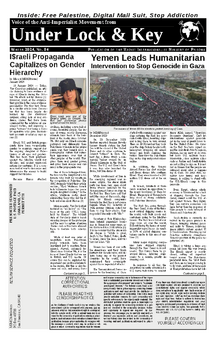
Fighting Deadly Texas Heat Through the Legal System
Between the years 2007 and 2011, 13 prisoners died from the heat in Texas prisons. Two wrongful death lawsuits have been filed in a Galveston Federal Court accusing Texas prison officials of negligence in the deaths.
Scott Medock, an attorney for the Austin based Texas Civil Rights Project, which filed the suits with Austin attorney Jeff Edwards, called some east Texas prisons "death traps."
The Constitution does not require prisons to be maintained at a comfortable temperature. However, if there is extreme heat or cold, prisoners' Constitutional rights are affected. Extreme heat can violate the Constitution. Refer to: Brock v. Warren county 713 F. Supp 238 (E.D. Tenn. 1989) - Maddison County Jail Inmates v. Thompson 773 F. 2d 834, 838-39 (7th cir. 1985) - Hamilton v. Love 328 F. Supp 1182, 1190 (E.D. Ark. 1971).
Prisoners with heat restrictions are in "grave danger" of serious injury and possible death. To win a Section 1983 lawsuit you must show that staff officials acted with "deliberate indifference" to your health risk. "Deliberate indifference" exists when an official knows about a serious danger to a prisoner and yet is "indifferent" (unconcerned, uncaring) to that danger. You can use the fact that the conditions were "longstanding, pervasive, well-documented, and/or expressly noted" by officials in the past to prove indifference. It is enough that the official acted or failed to act despite his/her knowledge of a substantial risk of serious harm. There are several kinds of circumstantial evidence that you can use to prove an official's deliberate indifference. These include copies of grievances and appeals, copies of informal notes and letters (I-60s) that you wrote to officials, and you can explain in a declaration exactly when and how you told officials about risk in prison.
As a general rule, officials may not refuse to respond to a substantial risk of serious harm on the grounds that it would be too expensive to fix it. Cost is not a defense to Constitutional liability.
The Eighth Amendment to the U.$. Constitution, among other things, protects convicted prisoners against cruel and unusual punishment. The conditions of confinement must not involve the wanton and unnecessary infliction of pain, nor may they be grossly disproportionate to the severity of the crime warranting imprisonment (Rhodes v. Chapman 452 US. 337, 347, 69 L.Ed. 2d 59, 101 S. Ct 2392 (1981).) Whether conditions of confinement are cruel and unusual must be determined from the contemporary standards of civilized decency that currently prevail in society. At a minimum, the Constitution requires the state to provide minimally adequate living space that includes reasonably adequate ventilation, sanitation, bedding, hygienic materials and utilities (Grubbs v. Bradley, 552 F. Supp 1052, 1122 (M.D. Tenn. 1981).) Constitutionally adequate housing is not denied simply by uncomfortable temperatures inside cells, "unless it is shown that the situation endangers inmates health" (Smith v. Sullivan, 553 F. 2d 373, 381 (5th Cir 1977).) TDCJ may be held liable under Section 1983 if deprivation of prisoners' Constitutional rights were the result of "custom" or "policy" (Monell v. New York City Department of Social Services, 463 US 658, 56 L. Ed. 2d 611, 98 S.Ct. 2018 (1978)).
Texas prison conditions do not meet Constitutional standards!
MIM(Prisons) adds: We print this caselaw for prisoners to use in filing grievances against the dangerous heat conditions in Texas. We have received many reports on the battle against this health risk. Get involved in this fight, file grievances, document the situation, and write to us for the Texas grievance guide.








